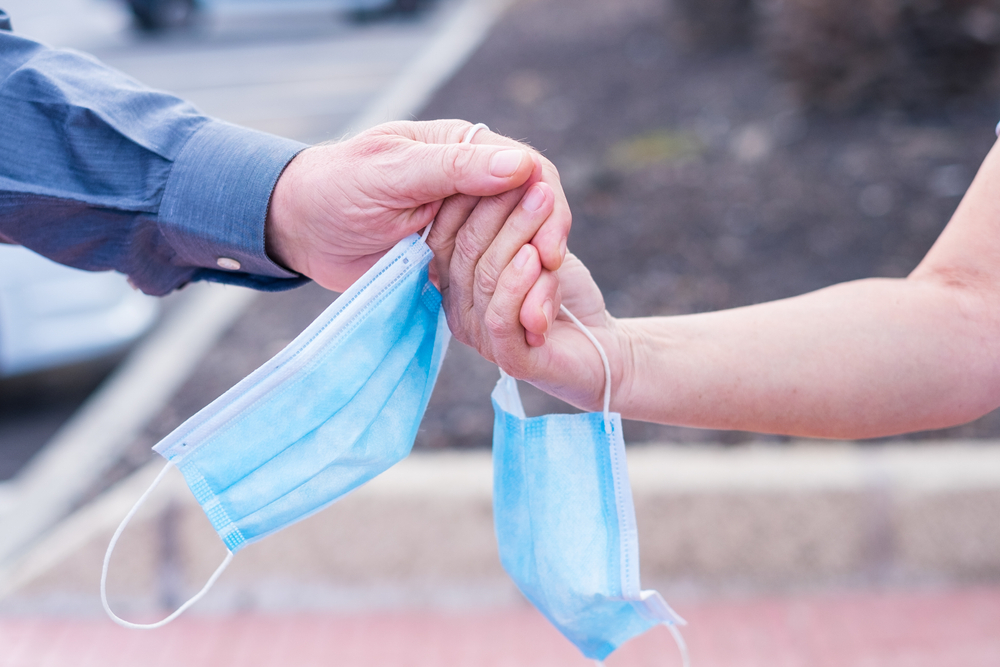

Words like ‘change’, ‘unprecedented’, ‘crazy’, have been thrown around daily in our lives over the past 7 months. COVID, shut-down, quarantine, isolation have become conditions we have had to learn to live with. They have all become associated with negative feelings, fear, hopelessness, and most of us feel like we are in a constant state of survival. This is a very hard way to live and yet we are managing it. The conditions that have led to this state of affairs have changed irrevocably how we will live in the future - greater awareness on hygiene, social distancing, management of viral illness both at a macro and micro level. On top of that, we are also aware that trying to go back to our old ways leads to community relapse and results in a re-emergence of infections, loss and distress.
These same conditions can be found when we take a look at relationships that begin to struggle.
Small hurts and mistakes continue to build up until each new hurt or mistake has a greater negative impact on the relationship and resentment begins to take hold. Sometimes crises emerge, financial failures, work changes, births, deaths, betrayals, all sorts of things can cause big ruptures in our relationships. Couples may eventually enter therapy and turns out over 80% of couples that attend evidence-based couples therapy such as Gottman therapy, with a trained therapist see significant improvement in their relationship quite quickly.
This of course is wonderful! But that improvement occurs because they understand the cause of their misery, they learn new ways to treat, prevent and avoid that misery in the future and so they feel better and stop coming to therapy. Sadly, just like with COVID, when we feel relaxed about the situation, we often end up going straight back into our old habits and lo and behold relapse occurs. Before they know it their relationship is feeling worse than it did before they started therapy. This is relapse.
Relapse is a well known and very common phenomenon across all health areas, physical and mental. The World Health Organisation (WHO) research suggests that regardless of medical access, 50% of patients with chronic diabetes, hypertension and asthma do not take their medication, and 70% do not make the lifestyle changes recommended to improve and prolong their lives.
Relapse rates after treatment for addiction have been well documented to be between 40 - 60% - See https://www.psychologytoday.com/us/basics/relapse). Similar relapse rates have been observed after treatment for a range of psychological treatments for depression, anxiety, trauma and couples therapy. Therefore, we see that relapse is ‘normal’, but being normal does not make it okay or acceptable. It means we need to plan for it.
When we make positive changes in our lives whether they are health, lifestyle, behavioral or relationship changes we need to put relapse prevention plans in place. In terms of relationship therapy this might mean some/all of the following:
- Regular check-up visits with your therapist, just like you do with your dentist, every 6 months for a few years until you feel totally confident that the positive changes you have made are sustainable and now your new normal;
- Attending a couple’s workshop or retreat every year or two to revisit and reinforce the new knowledge and skills you have learned (see our Art and Science of Love workshops)
- Use our book 365 Simple Ideas to Improve your Relationship to do one small thing each day that helps your relationship in a positive way. Just like a daily walk or flossing helps keep your body and teeth in good condition, these daily tools and tasks will maintain and increase your relationship health. Available for $55 including postage and handling.
Of course, as they say “prevention is better than cure” and it’s equally true that “relapse prevention is better than chronic dis-ease”.
